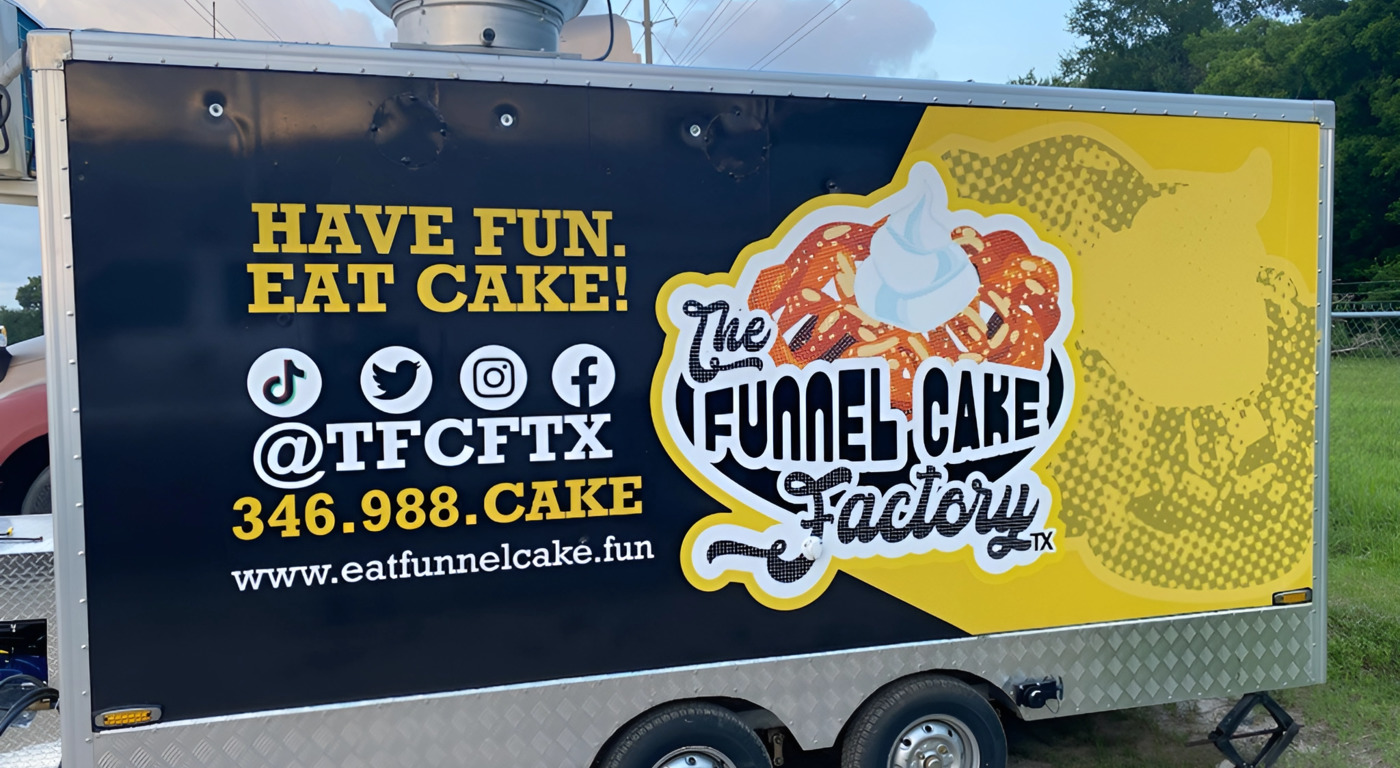
The tantalizing aroma of sizzling burgers, the savory taste of gourmet tacos, and the convenience of grabbing a quick bite on the go – it’s no wonder that food trucks are all the rage. In recent years, the food truck industry has experienced an explosive growth, offering entrepreneurial food enthusiasts a unique opportunity to share their culinary creations with a wide audience.

In this blog post, we will take you on a journey to design your very own custom food truck that not only reflects your brand identity but also attracts hungry customers.
1. Understanding Your Concept and Target Market:

Before you hit the gas pedal on your custom food truck dreams, it’s essential to define your concept and identify your target audience. Are you focusing on comfort food classics or modern fusion? Conduct market research to understand customer preferences and trends. Identify what sets your custom food truck apart from the rest and consider how you can cater to your target market’s tastes and needs.
2. Establishing a Budget and Timeline:

Designing a custom food truck involves financial considerations, including purchasing or leasing the vehicle, equipment costs, permits, and insurance. Crafting a realistic budget is crucial to ensure a smooth and sustainable journey. Create a timeline for the design and construction process, allowing room for unexpected delays or challenges. Stay on track and remember that patience is a virtue when it comes to turning your ideas into a reality.
3. Choosing the Right Layout and Equipment:

The layout of your custom food truck has a significant impact on functionality and customer experience. Consider the type of food truck layout that suits your concept best, whether it’s a traditional service window or an open-air kitchen. Selecting the right equipment, such as cooking appliances, refrigeration, storage, and serving areas, is crucial for delivering high-quality and efficient service. Invest in durable, space-efficient equipment that will withstand the demands of a mobile kitchen.
4. Branding and Visual Identity:

In a crowded custom food truck scene, creating a strong brand identity is essential for standing out. Your brand should resonate with your target market, evoking a sense of connection through your logo, color schemes, typography, and signage. Ensure that your branding elements are visually appealing and cohesive, leaving a lasting impression on your customers.
5. Interior and Exterior Design:

Optimize your custom food truck’s interior design by considering layout optimization, seating arrangements, and customer flow. Select materials, finishes, and lighting that are not only visually appealing but also functional, ensuring ease of operation and cleanliness. Don’t forget to dress up the exterior of your custom food truck with eye-catching vehicle wraps, paint colors, and graphics that showcase your personality and grab attention on the streets.
6. Ensuring Safety and Compliance:

Safety should always be a top priority in the mobile food industry. Familiarize yourself with health and safety regulations, including proper food handling, ventilation, and fire safety measures. Make sure that you have all the necessary permits, licenses, and inspections required for operating a custom food truck. Complying with regulations will not only protect your customers but also safeguard your business.
7. Customization and Personalization:

To truly bring your brand to life, think outside the box and find unique ways to customize your food truck. Consider interactive menus, cozy customer seating areas, or incorporating local art and culture to create a memorable and engaging experience. Let your creativity shine through and leave a lasting impression on your customers.
8. Maintenance and Upkeep:

Maintaining your custom food truck is key to its longevity and efficiency. Regular maintenance and cleaning will ensure that your equipment functions properly, and your customers are served safely. Stay on top of repairs and find reliable service providers who can assist you in keeping your custom food truck in top shape.
9. Marketing and Promotion:

Launching a food truck is just the beginning; effectively marketing and promoting your business will help you make a mark in the industry. Harness the power of social media to create a strong online presence, partner with local businesses to expand your reach, and participate in events to showcase your offerings. Encourage customer reviews and word-of-mouth referrals, as they can be the driving force behind your success.
Conclusion:
Designing your custom food truck is like creating a masterpiece on wheels. By understanding your concept and target market, establishing a budget and timeline, choosing the right layout and equipment, and focusing on branding, design, safety, customization, maintenance, and marketing, you can set yourself up for success in the mobile food industry. So, put on your chef's hat, fire up your creativity, and get ready to hit the road in your very own custom food truck.

At Jerusalem Custom Food Trucks & Trailers, we understand that the road to culinary success is paved with passion, innovation, and a dash of creativity. As a leading provider in designing custom food trucks, we take pride in helping chefs and entrepreneurs bring their culinary dreams to life on wheels. With years of expertise in crafting unique and efficient mobile kitchens, we know that the journey to success begins with a well-thought-out and visually captivating food truck.
Let’s embark on this exciting journey together! Contact Jerusalem Custom Food Trucks & Trailers today to schedule a consultation and take the first step towards making your custom food truck dreams a reality. Your culinary adventure awaits – let’s design, create, and roll!

 Proudly built in America
Proudly built in America